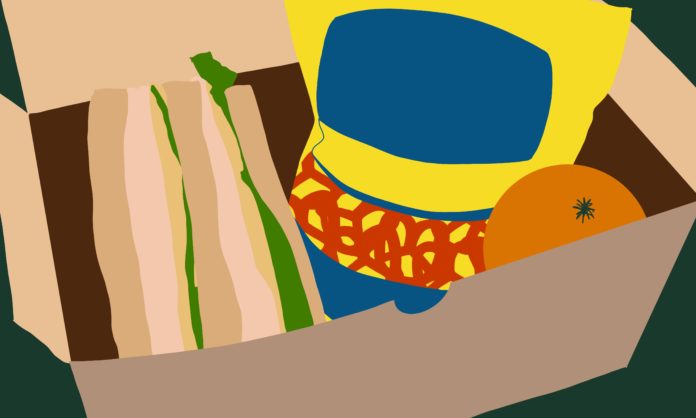By Ava Dunwoody | Staff Writer
The Baylor Collaborative on Hunger and Poverty joined the fight against childhood hunger during the pandemic with the Emergency Meals-To-You program. Since March, the organization has helped deliver over 28 million meals to around 270,000 children in rural communities in 43 states around the country.
They have partnered with the United States Department of Agriculture, McLane Global, PepsiCo and Chartwells. Doug McDurham, director of strategy and programs for the collaborative, said these meals went to children of families that typically qualify for federal funding via free or discounted school meals.
“We know that child hunger peaks in the summer because so many young people get … food assistance through school meal programs,” McDurham said. “When school is out, then they’ve got reduced access, so they are eating less.”
During the years before COVID-19, the Baylor Collaborative sent meals to these students through a summer meal program. But when the pandemic hit, McDurham said there were “schools closing all over the country,” which meant children’s access to food was being cut off early.
They then worked to adapt what was the summer meal program into the Emergency Meals-to-You delivery program, which was specific to the needs of the pandemic. Families were able to apply, and if they met the federal eligibility requirements, they began to receive meals.
Each box of food that was delivered to a family included 10 breakfasts and 10 lunches, and well as a few snacks, McDurham said. All of the food was provided by vendors who would be reimbursed by the federal government in the same amount normally spent on in-school free or discounted meals.
“We had huge interest,” McDurham said. “It was a fast and furious spring and summer.”
The official meal shipping ended August 15, but the Baylor Collaborative’s work is far from over. McDurham said one of the biggest goals of the program is to research the success of their projects in order to find new data in hopes of influencing policies to benefit hunger.
“In some ways, it’s appropriate to think of us like a learning lab,” McDurham said. “We are able to implement these different ideas about how to address hunger and then study them, understand the data and look at the results to create new knowledge about what works.”
The Emergency Meals-to-You initiative has received positive feedback from many impacted recipients. In a video posted on YouTube by McLane Global, South Carolina E.B Ellington Elementary School Principal James Dallas gave his thanks for the work the program did for his community.
“The Emergency Meals-to-You program was truly a Godsend,” Dallas said. “Our children and others in the community who needed food were able to get it during the Coronavirus pandemic. I am certainly grateful, and I know that I speak for my community regarding the goodness and grace that has and continues to be shown to each of us.”
In the same video, which was filled with recipient testimonials, a woman from North Carolina spoke about how the program impacted her family. The speakers were not named in the video.
“From juices, to milk, to cereal, to fruit, everything was just a blessing and a savior for our family financially during the pandemic,” the North Carolina woman said. “We are thankful that we got the opportunity to sign up, and we really appreciate it.”
McDurham said the connections made to people around the country were some of the best parts of participating in this program. But, he said, “now is when the real data analysis starts.”
There are currently three independent research projects taking place by faculty members around this program, including one in contract with the Urban Institute, a social and economic policy research program.
McDurham said all of these will help answer the question, “what did we learn from this that then can help legislators and elected officials make better policies that can have an impact on rural child hunger for generations to come?”
One of the best ways to help in the fight on child hunger is to get involved, McDurham said, which can “generate graduates who are passionate about food security and understand the systems.” The Baylor Collaborative partners with Baylor Missions frequently and also has internships available through their website.
“We are in the privileged and honored position to help make sure that families are making it okay through the pandemic. The emergency intervention is over,” McDurham said. “It feels like we are just beginning.”






